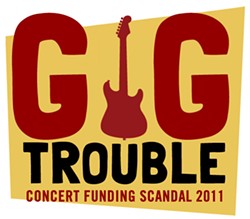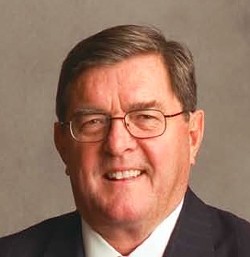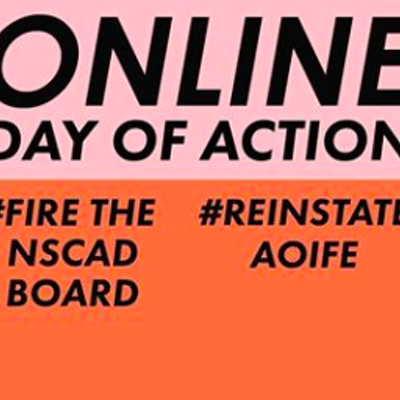That course of action, suggested by both city auditor Larry Munroe and city councillor Gloria McCluskey, threatens to create an epic legal battle between the city and Trade Centre Limited, a provincial crown corporation. But it isn’t just the $359,550 at stake; potentially, millions of dollars are at play, as well as the professional reputations of some of the most powerful people in Nova Scotia.
At issue is the biggest revelation in Munroe’s report on the concerts scandal: that in 2006, Trade Centre Limited’s then-president, Fred MacGillivray, shifted ownership of the Metro Centre’s ticket sales agency, called Metro Box Office, to TCL. MacGillivray had no authority to make the change; it was not approved by the TCL board of directors or by the city council. In fact, then-city CAO Dan English only learned of the shift when it showed up as an obscure line item in a budget report, long after the fact. English never notified city council of the change.
The shift of ownership of the multi-million dollar Metro Box Office operation led to the confusing commingling of city and TCL funds that made the concerts scandal possible, Munroe explains in his report on the scandal.
“When I read that, I couldn’t believe it,” says McCluskey. “They took [MBO] over, without even telling Dan English---that’s the kind of power Fred MacGillivray had---and nobody forced him to put it back. Let me tell you something: Fred MacGillivery did whatever he damn well wanted to do. That’s how much power he had.”
“I’m concerned about it,” says Munroe of the transfer of Metro Box Office away from the city. “We have an open file on that. I’d like to understand that transaction. We’re having a look at it---it’s including in phase two [of the concerts investigation]. The city should seek legal advice as to what its course of action is.”
Ticket Atlantic
Before 2006, Metro Box Office was the operation that sold tickets for events at the city-owned Metro Centre. Trade Centre Limited managed Metro Box Office, but all costs of that operation were city costs, and all revenues were city revenues.
MacGillivray, however, wanted to roll that operation into a new, bigger ticket agency called Ticket Atlantic, which would sell tickets not just for the Metro Centre but for Exhibition Park and for any other venue that it could attract---that is, the government-owned Ticket Atlantic would compete with private ticket agencies.
As the creation of Ticket Atlantic was a substantial re-organization of TCL operations, and an expansion into the private market, it should have been first approved by the TCL board and, arguably, by the legislature. But MacGillivray made the change unilaterally, without consulting anyone, much less getting approval. Likewise, on the city side, a change of this magnitude should have been approved by both the finance and legal departments, as well as by city council.
When English learned of the transfer of Metro Box Office away from city control, he wrote MacGilliivray asking for an explanation, but got no reply. After English wrote a second letter, MacGillivray wrote back, giving assurances that the new scheme would be “revenue neutral” for the city---that is, the city wouldn’t lose any money.
Here’s how it works: instead of paying all the costs and receiving all the revenue from ticket sales for Metro Centre events, the city would now pay none of the costs, and would receive a straight payment of 40 cents per ticket for each ticket sold through Ticket Atlantic for Metro Centre events. Additionally, the city would continue to get all profit from season ticket sales for the Rainmen and Mooseheads.
But how was the 40-cent figure arrived at? No one knows. There is literally no paperwork to explain it, says Munroe. Evidently, MacGillivray came up with the number himself, without consulting any accountants, without having it vetted by either TCL’s or HRM’s financial officers.
Even if the 40-cent figure miraculously kept the city’s cash flow revenue neutral in 2006, there was no system created to make sure the arrangement was a good deal into the future. There has been no accounting review of the arrangement, no consideration of inflation. The city gets 40 cents for a show costing $20; the city gets 40 cents for a show costing $100.
“That’s the point we’re interested in,” agrees Munroe. “We understand that when the change took place, it was supposed to be neutral to the city. But why didn’t council know about it? Who did approve it? How are we ensuring that this [revenue neutral] continues to be the case? Is it the right business deal to have taken place?”
“I think it would be good to look at, to see why it happened, says McCluskey. “Why did Fred bring it over [from the city to TCL]? Was it because the Trade Centre funds were way down? It would be a good plan to look at that and say, ‘Why did he do it?’ I mean, he had a reason.”
$359,550 invoice to the city
The changeover from Metro Box Office to Ticket Atlantic was done so hastily, so sloppily, that MacGillivray didn’t create a new TCL bank account for the venture. Instead, the new TCL Ticket Atlantic operation continued to use the old Metro Box Office bank account---that is, TCL funds were being placed in a city bank account, and TCL was writing cheques to pay TCL bills with a city bank account. The cheques have the HRM logo on them.
MacGillivray retired in 2009, but TCL continued to so neglect the situation that MacGillivray was still a signatory on the account in April of 2011, when Munroe started investigating the matter.
TCL’s bookkeeping, such as it was, produced a line-item breakdown of the single bank account, separating out the 40 cents per ticket for events at the Metro Centre and assigning that to the city. All other ticket sales proceeds, for events held anywhere except the Metro Centre---like, say, for concerts held on the Common---were considered TCL revenue.
So, it makes no sense at all that the advances to MacKay, which were to be based on future ticket sales for concerts on the Common, were considered city loans. But that’s exactly what happened: MacGillivray’s successor, Scott Ferguson, insisted that English’s successor, Wayne Anstey, sign loan documents saying that the city was backing loans made with what TCL itself considered TCL money.
“At one point,” explains Munroe in his report, “Mr. Anstey...proposed Ticket Atlantic cover [the loans to McKay.] Mr. Ferguson responded to this suggestion,
Wayne. My problem is the auditor general has already put us on record regarding risk as a result of the past world events we hosted. I am not permitted to do so again. I could advance the funds from hmc [Halifax Metro Centre] if it was approved from your end. The risk would only be short term...“In a March 29, 2010 email exchange between Scott Ferguson, [and TCL staffers] Grant MacDonald, Robert Kanchuk and Carrie Cussons,” continues Munroe “Mr. Ferguson instructed his staff to contact Mr. Anstey on the process. He stated, ‘Grant. Could you connect with Wayne on the process, letter from him. The letter will have to be very clear that this is approval from the city to advance funds to Harold from HMC, not Ticket Atlantic. Robert connect with Grant assuming the cash is there and we are ok from a cash flow perspective.’”
“It is clear from this series of emails,” concludes Munroe, “that Mr. Ferguson of TCL knew advancing funds from Ticket Atlantic might not comply with provincial directives. However, he was still prepared to advance funds from the Halifax Metro Centre, an entity for which he had a responsibility.”
In short, Ferguson had already been reprimanded by the TCL auditor for advancing ticket sales receipts for another event---presumably the world hockey championships held in Halifax---so he knew these kinds of advances were improper, an inappropriate acceptance of risk. But, he continued to advance ticket sale money anyway, and covered his bureaucratic ass by getting Anstey to guarantee the loans with city money.
All told, $5.6 million in loans were made to MacKay from the city bank account that contained TCL money. At Ferguson’s urging, Anstey and mayor Peter Kelly signed the six contracts authorizing the loans, including the last, which has subsequently been characterized as a “forgivable loan” of $400,000 from the city to MacKay’s company, Power Promotional Events, albeit the money actually came from funds that TCL claimed as its own.
In practice, TCL was to make all ticket agency profits from the Common concerts, while the city assumed all risks. If the concerts were successful, TCL’s bottom line would increase from ticket sales; if the concerts were not successful, the city would have to cover all losses from the loans made based on unrealized ticket sales.
“Scott learned from the master, [Fred MacGillivray],” says McCluskey.
As it came to pass, the concerts were financial failures, and MacKay failed to pay back the bulk of the last $400,000 “forgivable loan.” Ferguson presented a TCL invoice to the city for $359,550 to recover the lost funds, and the whole house of cards came tumbling down, resulting in our present scandal.
But why should the city pay TCL?
“There are enough questions in my mind,” says Munroe, “that I think council needs to take all these facts, go get some [legal] advice and make a determination of whether they should write a cheque for $359,000. I’m not saying they should or they shouldn’t, I’m just saying ‘Go make darn sure you know what you’re doing with this particular one.’”
It’s an open question whether a majority of the “make no waves” city council will agree to take on Trade Centre Limited in court. They should. There is a considerable amount of taxpayers’ money at stake---not just the $359,550, but also whatever losses were incurred from the takeover of Metro Box Office, perhaps millions of dollars.
And besides the fiscal imperative to go to court, forcing Trade Centre Limited officials past and present to testify under oath might, just might, result in what is most needed in Nova Scotian governance: bureaucratic accountability.

















